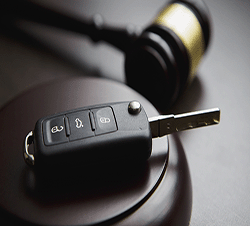Texas Traffic Court Records Search
How Texas Traffic Court Works
If you've ever been handed a moving violation, or driving citation, in Texas, you might have some questions about the traffic court process. Understanding how traffic court works, and the process of contesting a driving citation, are the most common questions people typically have. Another common question is if you fight a moving violation that you've received, how often do cops show up to court in these situations. We will dive into these questions and highlight the process and highlight the key points on fighting a driving citation.
The Traffic Court System for Moving Violations
Texas moving violation are typically handled by Municipal Court, or Justice of the Peace Courts. These courts address criminal infractions, which are minor criminal offenses including most moving violations. If you've received a driving citation, the specific court handling your case will be listed on the ticket. For instance, if you're in Houston, the Municipal Court in Houston, will handle your case if you decide to fight it. If you don't want to fight it, you can simply pay the fine and that is basically saying 'you are guilty' of the moving violation.
The Process of Fighting a Moving Violation in Court
If you decide to to fight a traffic citation in court, make sure you know what to do and you are prepared. Here's a quick breakdown of what to expect:
- Plead Not Guilty: To fight your ticket, you will want to plead not-guilty and ask for a court date. Most of the time this can be handled by mail, phone, or online, depending on the county your citation was issued in.
- Preparation: Before your court appearance, collect any relevant evidence and/or witness statements that may support your case. If you are fighting a DUI or DWI, you may want to hire a lawyer as these are typically misdemeanor cases in which you most likely be arrested for.
- Appearing in Court: During your court hearing, you will be asked to present your case to the judge and why you feel you are not-guilty. This can include questioning the police officer that issued the citation.
- The Verdict: After hearing your case and testimony, the judge will make a ruling pretty quickly. If you're found not-guilty, the citation will be dismissed. If you're found guilty, you'll be required to pay the fine. If you are found guilty then you will receive a point, or more, on your driving record. You can however request to go to Driving Safety Classes, or Traffic School, to have a point removed from your record. This will help to keep your driver's license in good shape, as well as keep your auto insurance rates down.
What You Should Do to Prepare for Traffic Court in Texas
First, it's important to be prepared to present your case. You should appear in court well groomed, and have any evidence or arguments you have gathered ready to share with the judge. Since you will most likely not have an attorney, unless it's a reckless driving citation or DUI, you should read up on court procedures so that you are as prepared as possible. Make sure to dress well and show up early, those are always signs of respect that can only help. If you are late and not dressed properly then it can be taken as a sign of disrespect and potentially hurt your chances of any forgiveness or leniency. Then finally, if you are still found guilt of the moving violation, be prepared to pay the fine so that you don't have any additional penalties or fines tacked on.
How Often Do Cops Show Up For Traffic Court in Texas?
One of the most common questions regarding traffic court is, "How often do cops show up for traffic court in Texas?" There is not a clear answer to the percentage varies from county to county. This is partially because every traffic court case is unique. As a general rule, police officers are generally expected to attend court hearings when they can. However, there often times where they might not show up because of scheduling conflicts.
If the police officer that issued you a moving violation does not show up, you can request to have the case dismissed. But, it is ultimately up to the judge to decide on this. More serious cases such as DUIs might not get dismissed, and rescheduled instead. It's always a good idea to assume that the police officer will show up, and if they do not, then you can count yourself lucky.


